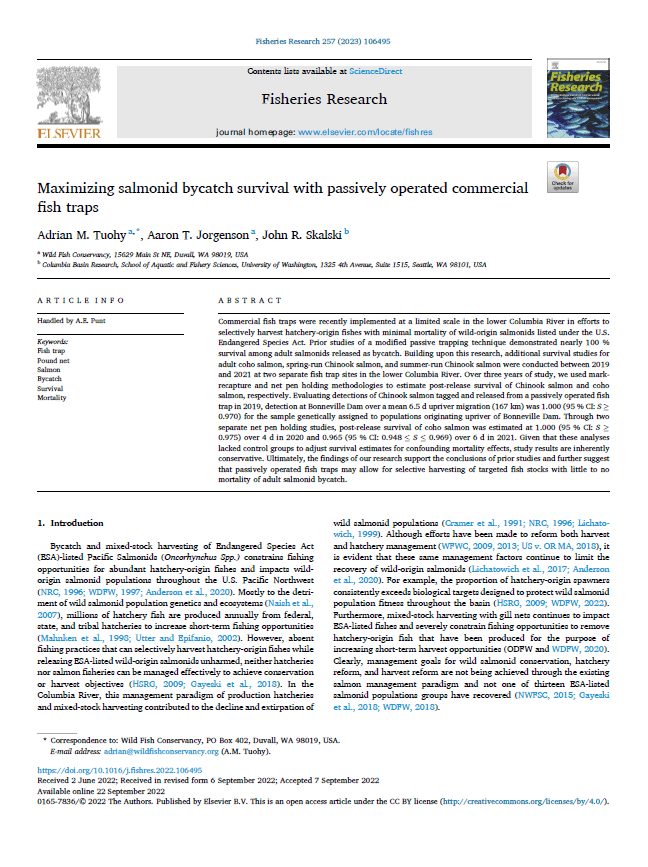
Description |
|---|
A peer-reviewed scientific journal publication on WFC’s Columbia River fish trap research from 2019-2021 from the journal of Fisheries Research by Tuohy, A. M., Jorgenson, A. T., and J. R. Skalski (2022). Commercial fish traps were recently implemented at a limited scale in the lower Columbia River in efforts to selectively harvest hatchery-origin fishes with minimal mortality of wild-origin salmonids listed under the U.S. Endangered Species Act. Prior studies of a modified passive trapping technique demonstrated nearly 100 % survival among adult salmonids released as bycatch. Building upon this research, additional survival studies for adult coho salmon, spring-run Chinook salmon, and summer-run Chinook salmon were conducted between 2019 and 2021 at two separate fish trap sites in the lower Columbia River. Over three years of study, we used mark-recapture and net pen holding methodologies to estimate post-release survival of Chinook salmon and coho salmon, respectively. Evaluating detections of Chinook salmon tagged and released from a passively operated fish trap in 2019, detection at Bonneville Dam over a mean 6.5 d upriver migration (167 km) was 1.000 (95 % CI: S ≥ 0.970) for the sample genetically assigned to populations originating upriver of Bonneville Dam. Through two separate net pen holding studies, post-release survival of coho salmon was estimated at 1.000 (95 % CI: S ≥ 0.975) over 4 d in 2020 and 0.965 (95 % CI: 0.948 ≤ S ≤ 0.969) over 6 d in 2021. Given that these analyses lacked control groups to adjust survival estimates for confounding mortality effects, study results are inherently conservative. Ultimately, the findings of our research support the conclusions of prior studies and further suggest that passively operated fish traps may allow for selective harvesting of targeted fish stocks with little to no mortality of adult salmonid bycatch. |
File Attachment |
|---|
Download |